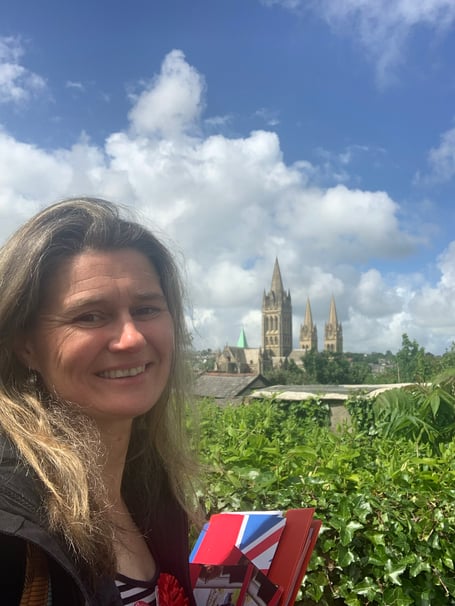MANY of the organisations I have visited this August have been focused around working to alleviate the poverty we still see in Cornwall.
I went to see the foodbanks in both Penryn and Truro. At both, demand has skyrocketed while donations have fallen and they are having to spend their reserves buying food to give out because the donations do not keep pace with the need. A shocking statistic is that up to 40 per cent of the people using the foodbank are in work and I heard of nurses leaving their shift, doing the school run and coming straight to the foodbank with their children. We are not out of the cost-of-living crisis yet if a fulltime wage doesn’t cover bills and put food on the table. In Cornwall we have a particular issue with seasonal low-paid work on unpredictable hours and zero-hours contracts making budgeting even more difficult for people.
I visited the Job Centre in Penryn where a tight knit and long-serving team who know their area well work within the confines of Universal Credit to support people into work and navigate the system. Forty-two per cent of people who claim universal credit in the South West are in employment. That is higher than the national average of 38 per cent. The element of Universal Credit that covers housing is woefully inadequate. A shared room in a house in Penryn can cost £500 per month, yet the Housing allowance is only £392.50, further pushing people already struggling into dire straits as they try to cover extra rent, bills and service charges with their core benefit or salary.
I spoke to the Cornwall Community Foundation who distributed £3-million last year to the grass roots organisations in Cornwall who help to alleviate these issues. They rely upon private donations as well as government funding and many of the organisations they support and those who attend the Job Centre to help support people into work are funded by schemes like Shared Prosperity Funding (which partially replaced the EU funding which was specifically targeted to Cornwall to deal with our greater need), or the Household Support Fund, which was introduced to cover the extra need after Covid and has continued through the cost of living crisis.
Angela Rayner struggled with poverty when she was a single mother. She knows the issues and is focused on improving the situation. I am looking forward to this government’s new Employment Bill that she has championed shortly becoming law. It will mean the Low Pay Commission setting the minimum wage at a rate everyone can live on and a ban on one-sided exploitative zero hours contracts.
There is much to do to overcome the awful legacy the Conservatives have left us. It will take time, but we will get there.
Jayne Kirkham
Labour MP for Truro and Falmouth





Comments
This article has no comments yet. Be the first to leave a comment.